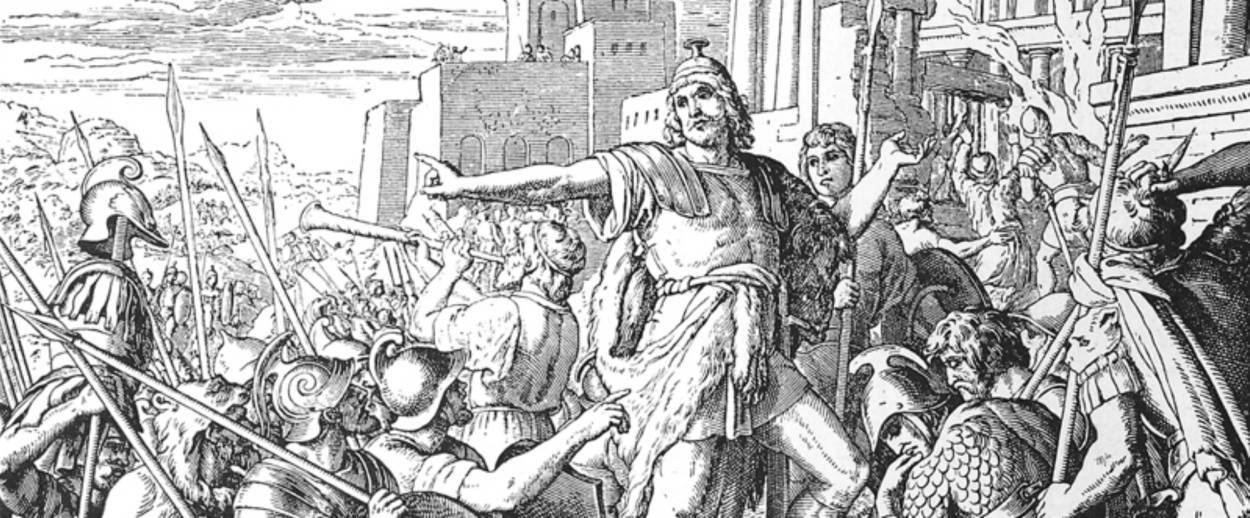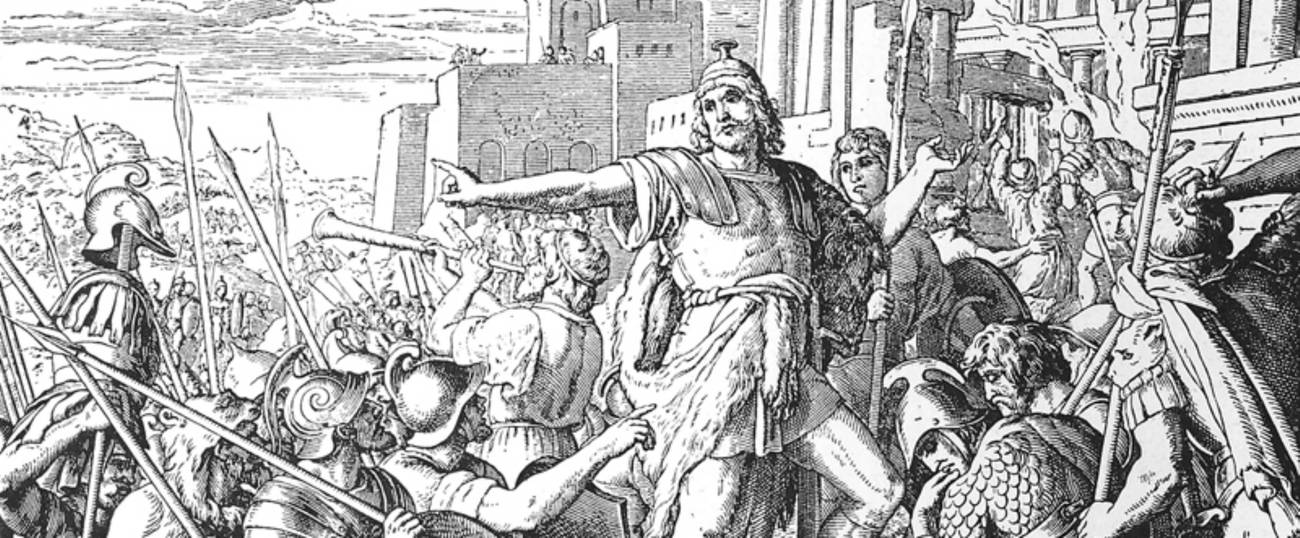What Is the True Meaning of Hanukkah?
We celebrate Hanukkah as the symbol of the fighting against assimilation. One author argues we’ve lost our way.




The holiday of Hanukkah is a tricky one. The story, as we all know, is that at the urging of the Tobiads, an assimilationist faction of Hellenist Jews, the Syrian-Greek monarch Antiochus IV Epiphanes invaded Judea and immediately set about abolishing all expressions of Judaism, including the dedication of an altar to Zeus in the Jewish temple in Jerusalem.
Against Antiochus’s machinations to stamp out Judaism—and the Hellenists’ efforts to eschew traditional Jewish laws and traditions with the modernity of the Syrian-Greek culture—rose a clan of brothers of the priestly family of the Hasmoneans: Judah Maccabeus, Jonathan Apphus, Eleazar Avaran, Simon Thassi, and John Gaddi. Collectively, they came to be known as the Maccabees, and they launched a guerilla war against Antiochus’s exponentially larger forces, eventually recapturing the temple in Jerusalem. Unfortunately, in their efforts to re-dedicate the temple, the Maccabees discovered that nearly all the ritual oil necessary to light the golden menorah had been profaned, save for a small unopened bottle still bearing the seal of the High Priest, yet containing only one day’s worth of oil. It would take eight days for new pure oil to be pressed and prepared, and miraculously, the one-day’s supply lasted for the entirety of that time.
So Hanukkah is essentially all about the miracle of the oil, right? Well, not exactly.
The eight-day re-dedication of the temple is described in 1 Maccabees, but the miracle of the lights do not appear here. The special Al HaNissim prayer added during Hanukkah actually makes no mention of the miracle of the oil at all. In fact, according to the prayer, the miracle of Hanukkah is actually the military victory. It isn’t until we read the Talmud (Shabbat 21b) that we see the miracle of the oil explicitly connected to Hanukkah. Thus, there were actually two miracles of Hanukkah: the stories of the military victory, and the oil.
Initially, under the reign of Jewish autonomy ushered in by the Maccabees and their descendants, the Hasmonean kings, the military victory was the more celebrated one. However, by the time the Talmud was redacted and autonomy had been lost to Rome, it was hard-pressed to commemorate the now-lost independence. Instead, the focus became the commemoration of traditional Judaism’s triumph over external forces who would extinguish it and internal forces that would reform it.
But regardless of which miracle was emphasized, and when, the crux of the meaning of Hanukkah is lost by the majority of people who celebrate the holiday as a fight against assimilation. What ultimate irony it is then, that Hanukkah has increasingly been reduced—with Hanukkah bushes, eight days of presents vs. the traditional gelt, and Mensch on a Bench—to playing keep-up with Christmas. That Hanukkah enjoys an extremely high rate of celebration among secular Jews—the very kind of Jews Hanukkah celebrates defeating—is disheartening. What ultimate irony it is then, that the (appointed and self-proclaimed) “torch bearers” of Judaism—Orthodoxy—not only exhibits internalized assimilation, from dress codes to the Vatican-esque nature of the Israeli rabbinate and racism. These ironies swell and form into an Ashkenormativity as the only legitimate form of Orthodoxy, or even Judaism itself.
I wonder, if the Maccabees could see us today, would they think the Hellenists won after all?
MaNishtana is the pseudonym of Shais Rishon, an Orthodox African-American Jewish writer, speaker, rabbi, and author of Thoughts From A Unicorn. His latest book is Ariel Samson, Freelance Rabbi.